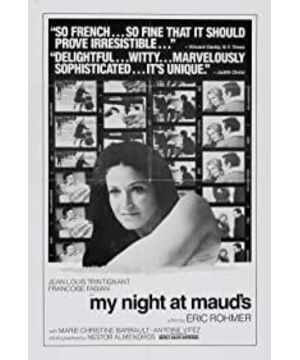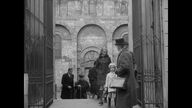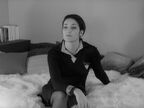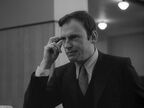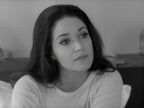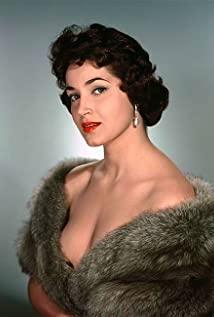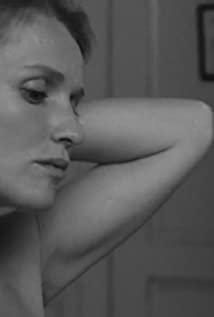"Orange Girl" is indeed necessary to review. I watched the film "Ma Nuit Chez Maud" directed by Eric Rohmer. Jean-Louis Trintignant (played by Jean-Louis Trintignant) secretly stared at Françoise, the girl he liked in the church, and followed several streets after the mass. This plot is straight out of "Orange". When Jostan Judd writes a book, he has never been willing to go straight, so it's obviously not very twists and turns, a bit of a fateful story, and every step is startling. Caused a long echo of sadness.
Rohmer's writing skills are not inferior to Judd's. I think Jean-Louis and Françoise's narration scenes are very refreshing. If they don't add any flavor, don't hide dark mysteries, and go hand in hand, It must be sunny and the wind is blowing on the face, it is the kind of gentle affection that is seductive, and it is still realistic and will not be out of hand. Rushing into Jean-Louis's old classmate Vidal and his ambiguous friend Maud, the outline of his feelings was blurred suddenly. When a moral trial was brought up before me, I didn't think it had to be taken seriously, but thought it was an accident. The night is quite happy.
Similar to Judd, Rohmer buried some ingenuity in presentation, such as tense shift. He also played around with oral accounts, making the whole thing full of surprises like "the world is so small" and "what a coincidence". The third time Jean-Louis met Françoise, each time it was an accident. The first time he met in the church, the second time he saw her stepping on the pedals in the car, she looked back and waved her hands, thinking in her heart that this was his wife. The third time I saw Feiying Bicycle again, I finally adopted the paparazzi strategy and chased after him. He usually cooks by himself at night, and his usual route is not covered by Vidal's, but he walked into a restaurant on Christmas Eve and ran into him head-on. And after this contingent event came true, Vidal could still choose how to reminisce, but he chose the sloppy one. He wanted to eat together, listen to concerts, meet the woman he loved and feared, and even set up an arrangement to stay. Jean-Louis, the fact that he and Maud have been together for the night. "Choisir", "probability" (la probabilité), "luck" (la chance), etc., through this film with a bit of mathematical temperament, it constantly reminds viewers that, here, the small probability events that get together have happened again. .
As an engineer at Michelin, Jean-Louis was addicted to mathematics in his spare time. He took courses in modern probability (Cours moderne de cacul des probabilités) and went to the pocket bookstore to read Pascal's Meditations (Pensées). On the one hand, he likes to think about things around him with a mathematical attitude. For example, he pointed out the importance of information (or rather "data") to Vidal. If he didn't know Vidal's residence and work address, he could not figure out their route. probability of intersection. In other words, the cause of a random event affects how likely it is. He, on the other hand, was a devout Catholic, in a mocking tone of Maud, a "practicalist" (catholique pratiquant), on this level he was both attuned and at odds with the venerable Pascal, as if he had once been I thought I knew him in my heart, but then I felt that Pascal's words were all vide.
The long dialogue in the film is woven into the influence of pure mathematics and pure religion on people's view of love. It can also be said that Jean-Louis has reached a compromise after some contradictions. It seems that Jean-Louis summed up Vidal's view of history and pointed out that "le produit de gain par la probabilité", that is, the size of the probability is not a determinant, people choose to believe it because even the tiny possibility is wrapped in an infinitely huge psychological gain. Benefit, or rather, utility. When explaining gambling, Vidal turned to Pascal's book and said a similar attitude, that is, when a possibility cannot be rejected, once it is determined that it may work, you should bet. Jean-Louis, however, was not an actor, who, in Vidal's words, was called "inaction" (tu ne paries pas). "Maud's House" specially gave two or three scenes of Jean-Louis getting along with his colleagues. He is indeed as frank as himself. Whether he gets along well depends on who is opposite. , When communicating with colleagues, I will never accept Meng Lang's words, and use "sinistre" to describe it, which is really a compromise. However, for Maud's temptation, his inaction seems to be more like non-resistance, and even willing to take a risk, although he is not trying to live happily, but to fight against this possibility. When I was alone with Maud, there were many close-up shots of freezing. The words hung in the corners of my mouth and I swallowed. Jean Louis said, are you really sleepy, and the picture suddenly heated to ten degrees.
His emotional cleanliness, more, is bound by religious beliefs. He thinks there is no point in having sex with people for no reason before marriage, and he believes in eternal love and marital fidelity. If the other half also loves God, it will be even better. His denial of Pascal lies in dogmatic self-discipline, but he does not have a precise division of the degree of spiritual purification. And this ambiguity aroused the ridicule of Vidal, who knew his absurd years, while Maud, who questioned his beliefs and remained calm, was a bit of a plan to test and even conquer him. In front of the strange man, only the nightgown with bare legs was left. In the end, the nightgown was not needed. She asked him several times to lean over to light a cigarette and deliver tea, and when Louis was wrapped in a blanket to sleep on the stool, she called him "Idiot", and with a warm smile, Burning a faint flame.
However, this is a love drama after all, emotional confusion is the material that Rohmer likes, and the long chapters of lust and teasing often come back and forth quietly, stopping in the invisible stage of ambiguous. The main line of "Maud's House" is still the self-reported protagonist who wants to fall in love. The budding love is about to break out. Even in this calm and self-controlled engineer, it is like a light source of joy, cute and refreshing. This is just like Mozart's Violin Sonata No. 26 in B-flat major (Op. 378) selected by Rohmer in the concert segment. Although it is said to be a sad work by Mohs, the Xie Linhebler version I have heard is very clear. Yang, especially Xie Lin's delicate violin sound, is really tender like water, expressing quiet love, which is perfect. So the tone of the character is uplifting, and he does have a blonde girl in his heart that she refuses to admit (la blonde quin'existe pas). It is precisely because of this love that has not yet begun, that she has been thinking about her heart and mind again and again, and Jean Louis's role in the Maud's test scene is a little more determined to wait and see. It can also be said that it is the light and Advantage. When he said to Maud, "If I choose a woman as my wife, I will give her a love that will stand against time. If I stop loving her, I will despise myself" (Si je choisis une femme pour ma femme, c'est que je l'aime dans un amour qui résiste le temps, et si je ne l'aimais plus, je me mépriserai), the latter's prying eyes were filled with envy. So Maud, who was handsome in appearance, with peaceful eyes and a smile like a big boy's Jean-Louis provocation, also had a bit of wrestling meaning. The last time the gun went off, it seemed that he completely recognized it and returned the rules of the two sides.
If you don't talk about it, it's not a Rohmer-style film. Watching his narcotic films, it seems that everything is shot at random, and the background he gives, at least in my opinion, is not without meaning. I remember that "My Girlfriend's Boyfriend" (L'ami de mon amie) took place on the outskirts of Paris, and people's emotions were lifted up by the concrete jungle, although it was a very funny and frequent young story, watching those steel bars worn between office buildings , Sen Bai's living room will always feel a little forced. "Maud's House" was filmed in Clermont (the so-called Massif Centrale) and its surroundings in south-central France. The time was in winter, and there were many snowy scenes, adding a circle of desolation and desolation to the black and white film. . Having said that, "snow" also seems to be an accidental factor in the fulfillment of love. The heavy snow blocked the road and placed Jean-Louis in the gentle town of Maud. Sauvage's little world. Borrowing fire, making tea, and many props are marked with symbols. On one side is a mature woman who is stripped and mocking you as a "idiot". It's an obvious comparison.
We can say that books and movies each have their own gods, and the plots will eventually lead to the fate of the author and the director's intention, so there is no purely random event. Judd's "Orange Girl" and Rohmer's "One Night at Maud's House" are nothing but a powerful rendering of the impermanence of life under the will of God. It seems that it is not optional. In fact, it is constantly selected. Those events with extremely small probability are actually linked to fate. Fortunately, the focus of Rohmer's portrayal is love. "I met the people I met among the thousands of people in thousands of years. There was no one step earlier, no one step later, just happened to catch up." Since it is emphasized over and over how thin the probability is, it seems that there is no reason to actually meet it. Don't hold it tightly, enlarge it infinitely, until it burns vigorously.
As for the temptation outside the state, or everyone has a little secret, this kind of moral trial is probably not suitable for fragile human beings. Jean-Louis repeatedly said "I'm lucky" (J'ai eu la chance), and directly sold the option. This attitude is not prudent and clever. Of course, luck is best if you can't hit such a probability, and you can only see him or her who is exactly equal. Emotional experience is scarce and focused, and it is constant and long-lasting. Who says this is not a blessing from cultivation?
Image link:http://ciyunw.blogbus.com/logs/61374963.html
View more about My Night at Maud's reviews


